U.S. expels Russian diplomats, imposes sanctions for hacking

The Biden administration announced Thursday the U.S. is expelling 10 Russian diplomats and imposing sanctions against several dozen people and companies, holding the Kremlin accountable for interference in last year’s presidential election and the hacking of federal agencies. The sweeping measures are meant to punish Russia for actions that U.S. officials say cut to the core of American democracy and to deter future acts by imposing economic costs on Moscow, including by targeting its ability to borrow money. The sanctions are certain to exacerbate tensions with Russia, which promised a response, even as President Joe Biden said the administration could have taken even more punitive measures but chose not to in the interests of maintaining stability. “We cannot allow a foreign power to interfere in our democratic process with impunity,” Biden said at the White House. Sanctions against six Russian companies that support the country’s cyber efforts represent the first retaliatory measures against the Kremlin for the hack familiarly known as the SolarWinds breach, with the U.S. explicitly linking the intrusion to the SVR, a Russian intelligence agency. Though such intelligence-gathering missions are not uncommon, officials said they were determined to respond because of the operation’s broad scope and the high cost of the intrusion on private companies. The U.S. also announced sanctions on 32 individuals and entities accused of attempting to influence last year’s presidential election, including by spreading disinformation. U.S. officials alleged in a declassified report last month that Russian President Vladimir Putin authorized influence operations to help Donald Trump in his unsuccessful bid for reelection as president, though there’s no evidence Russia or anyone else changed votes or manipulated the outcome. The actions, foreshadowed by the administration for weeks, signal a harder line against Putin, whom Trump was reluctant to criticize even as his administration pursued sanctions against Moscow. They are the administration’s second major foreign policy move in two days, following the announcement of troop withdrawals from Afghanistan. Until now, Biden has largely focused on the coronavirus pandemic and economy in his first months in office. Biden said that when he advised Putin days earlier of the forthcoming measures — which included the expulsion of the 10 diplomats, some of them representatives of Russian intelligence services — he told the Russian leader “that we could have gone further but I chose not to do so. I chose to be proportionate.” “We want,” he said, “a stable, predictable relationship.” Even so, Russian officials spoke of a swift response, with Deputy Foreign Minister Sergei Ryabkov warning that “a series of retaliatory measures will come in the nearest time.” Other American measures are expected, though the administration is not likely to announce them. Officials have advised that their response to Russia would be in ways both seen and unseen. The sanctions are the latest in a series of actions that successive presidential administrations have taken to counter Russian behavior seen as antagonistic. It is unclear whether the new U.S. actions will result in changed behavior, especially since past measures — both Trump and Barack Obama expelled individual diplomats during their presidencies — have failed to bring an end to Russian hacking. But experts suggest this latest round, even while not guaranteed to curb cyberattacks, might have more resonance because of its financial impact: The order makes it more difficult for Russia to borrow money by barring U.S. banks from buying Russian bonds directly from the Russian Central Bank, Russian National Wealth Fund and Finance Ministry. It could complicate Russian efforts to raise capital and give companies pause about doing business in Russia. The impact of the sanctions and the U.S. willingness to impose costs will be weighed by Putin, though he is unlikely to make “a 180” degree pivot in his behavior, said Daniel Fried, a former assistant secretary of state for European and Eurasian Affairs. “The issue is, how can we push back against Putin’s aggression, while at the same time keeping open channels of communication and continuing to cooperate with Russia in areas of mutual interest,” Fried said. “And it seems to me the Biden administration has done a pretty good job framing up the relationship in exactly this way.” Eric Lorber, a former Treasury Department official now with the Foundation for Defense of Democracies, said the administration, is “surely trying to balance putting pressure on Russia, pushing back on Russia, while at the same time, not engaging in full-fledged economic warfare.” The White House did not impose sanctions related to separate reports that Russia encouraged the Taliban to attack U.S. and allied troops in Afghanistan, saying instead that Biden was using diplomatic, military, and intelligence channels to respond. Reports of alleged “bounties” surfaced last year, with the Trump administration drawing criticism for not raising the issue directly with Russia. Administration officials said Thursday they had only low to moderate confidence in that intelligence, in part because of the ways in which the information was obtained, including from interrogations of Afghan detainees. Among the companies sanctioned are websites U.S. officials say operate as fronts for Russian intelligence agencies and spread disinformation, including articles alleging widespread voter fraud in 2020. The individuals who were targeted include Konstantin Kilimnik, a Russian and Ukrainian political consultant who worked with former Trump campaign chairman Paul Manafort and who was indicted in special counsel Robert Mueller’s Russia investigation. The Treasury Department said Thursday that Kilimnik had provided “sensitive information on polling and campaign strategy” to Russian intelligence services. That went further than Mueller’s office, which said in 2019 that it had been unable to determine what Kilimnik had done with the polling data after getting it from the Trump campaign. Also sanctioned were the Kremlin’s first deputy chief of staff, Alexei Gromov, several individuals linked to Yevgeny Prigozhin, a businessman with close ties to Russia’s president, nicknamed “Putin’s chef” for serving Kremlin functions, and several front companies the U.S. says helped Prigozhin evade sanctions imposed earlier. The U.S. also sanctioned eight individuals and entities tied to Russia’s occupation in Crimea. Biden informed Putin that the sanctions were coming earlier
Ex-Donald Trump adviser Steve Bannon charged in border wall scheme
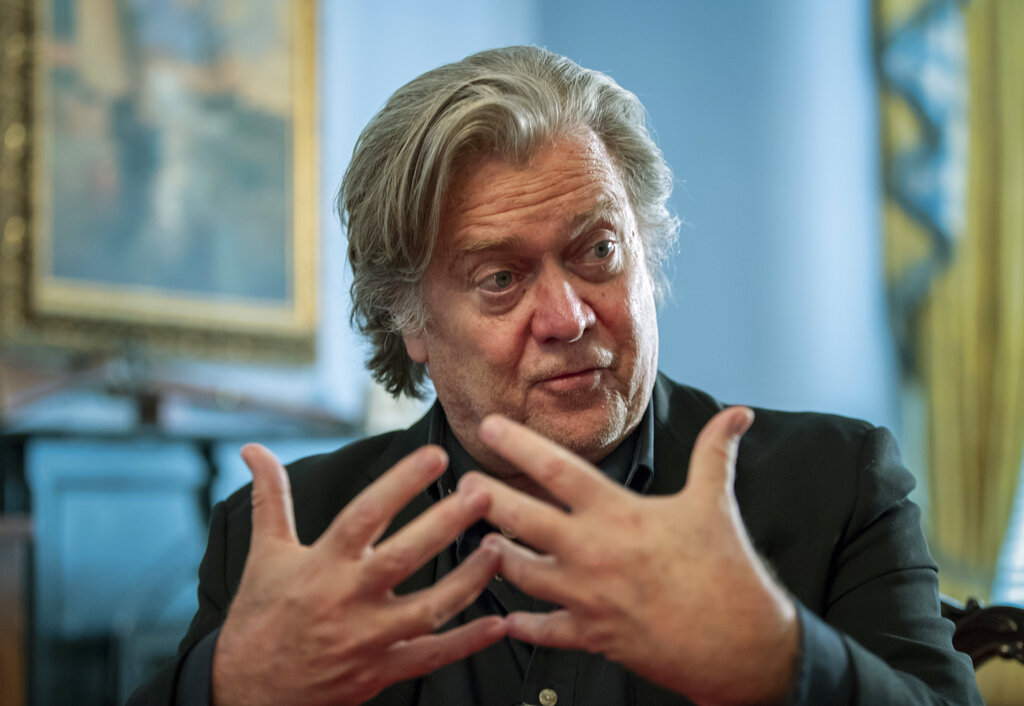
The arrests make Bannon the latest addition to a startlingly long list of Trump associates who have been prosecuted.
Donald Trump praises witness who refuses to testify against him
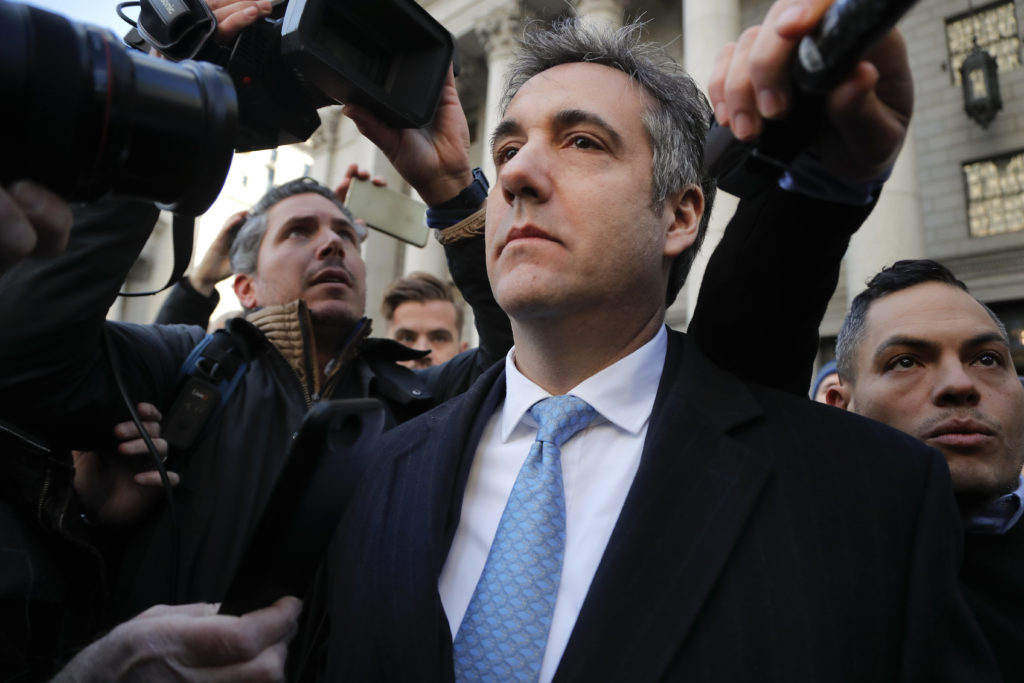
President Donald Trump praised a key witness in the Russia investigation Monday for having the “guts” not to testify against him, and said his former lawyer — who cut a deal with prosecutors — should head straight to prison. In a pair of politically charged tweets, Trump made clear that he is closely watching those who turn on him in the special counsel’s probe, which has ensnared some of the president’s closest advisers. So far, five people in Trump’s orbit have pleaded guilty to federal charges. The tweets add to mounting questions about whether Trump is taking steps to improperly influence witnesses in an investigation that has enraged him and shadowed his administration. Some legal experts, though, say they may not amount to witness tampering if Trump didn’t directly tell others what to say or not say. Trump already has come under scrutiny from critics who fear he may use his executive power to protect himself as well as friends and supporters. Last week, Trump told the New York Post that a pardon for his former campaign chairman Paul Manafort was not off the table. Prosecutors say Manafort torpedoed his plea deal with special counsel Robert Mueller by repeatedly lying to them, although Manafort denies that he lied. In one of Monday’s tweets, Trump took aim at Michael Cohen, his former personal attorney who once grandly declared he would “take a bullet” for the president but ultimately took a plea deal. Cohen pleaded guilty last week to lying to Congress about negotiations he had on Trump’s behalf for a real estate deal in Moscow. Though he told lawmakers the talks were done by January 2016, he admitted they actually lasted as late as June — after Trump had clinched the Republican nomination and after Russians had penetrated Democratic email accounts for communications later released through WikiLeaks. Cohen said he lied out of loyalty to Trump, who insisted throughout the campaign that he had no business dealings in Russia, and to be consistent with his political messaging. On Monday, Trump ripped into Cohen on Twitter. “You mean he can do all of the TERRIBLE, unrelated to Trump, things having to do with fraud, big loans, Taxis, etc., and not serve a long prison term?” Trump added that Cohen “makes up stories to get a GREAT & ALREADY reduced deal for himself.” Trump added: “He lied for this outcome and should, in my opinion, serve a full and complete sentence.” Minutes later, Trump lavished praise on his former campaign adviser Roger Stone. Mueller’s prosecutors are investigating Stone to learn whether he had advance knowledge of WikiLeaks’ plans to release hacked material damaging to Hillary Clinton‘s presidential effort. Trump lauded Stone for saying he’d never testify against the president. “This statement was recently made by Roger Stone, essentially stating that he will not be forced by a rogue and out of control prosecutor to make up lies and stories about ‘President Trump,’” he tweeted. “Nice to know that some people still have ‘guts!’” Stone then posted a screenshot of Trump’s tweet with a caption that said he was proud of their 40-year relationship and “prouder still of the amazing job he is doing making America Great Again!” Sen. Mark Warner, the top Democrat on the Senate intelligence committee, said Trump’s tweet was inappropriate. “The President of the United States should not be using his platform to influence potential witnesses in a federal investigation involving his campaign,” Warner said in a tweet. Stone said the idea that Trump’s tweet amount to witness tampering is “hysterical.” “I’m not a witness to any proceeding,” he said. David Weinstein, a former Justice Department prosecutor in Florida, said he was surprised by Trump’s comments Monday, but didn’t believe the tweets alone rose to the level of obstruction or witness tampering because Trump did not explicitly tell anyone what to say or not to say. Subjects of an investigation can still communicate to others entangled in a probe, and though they can encourage them to tell the truth, they cannot coach them to lie, he said. “What he seems to be saying is that people who continue to show support for him, in some way, may be rewarded for that support,” Weinstein said. “I don’t think it rises to the level of obstruction yet, but it certainly would cause people who are conducting the investigation to start asking questions about whether or not the target has reached out to them.” Trump’s message had an immediate effect on supporters. His remarks prompted Michael Caputo, the president’s former campaign aide and a longtime Stone friend, to launch a “GoFundMe” account to help pay Stone’s mounting legal fees. Stone said he’s paid about half a million in legal fees already and is projecting that total to reach $2 million. “I require a small platoon of excellent lawyers and they’re not inexpensive,” he said. A conservative author, who is an associate of Stone and in the crosshairs of Mueller’s investigation, filed a complaint Monday with the Justice Department, alleging prosecutors tried to coerce him to give false testimony and threatened to indict him. Investigators are looking into whether Jerome Corsi had contact with WikiLeaks or knew about their plans to release emails damaging to Clinton. Corsi has released documents showing Mueller’s prosecutors offered him a deal to plead guilty to a false statements charge but he’s rejected the offer. Corsi says he didn’t knowingly mislead investigators and wasn’t in contact with WikiLeaks. The Justice Department declined to comment on his complaint. The Russia investigation has dogged Trump for two years. In recent weeks, Trump has sharpened his criticism, accusing Mueller’s prosecutors of dirty tactics and pressuring witnesses to lie. Cohen’s decision to turn on his former boss was a particularly striking blow for the president. Cohen pleaded guilty in August to eight criminal counts, including campaign-finance violations, in a separate case unrelated to Mueller’s investigation. He said Trump directed him to arrange the payment of hush money to porn star Stormy Daniels
Donald Trump on Jeff Sessions: he ‘talks like he has marbles in his mouth’
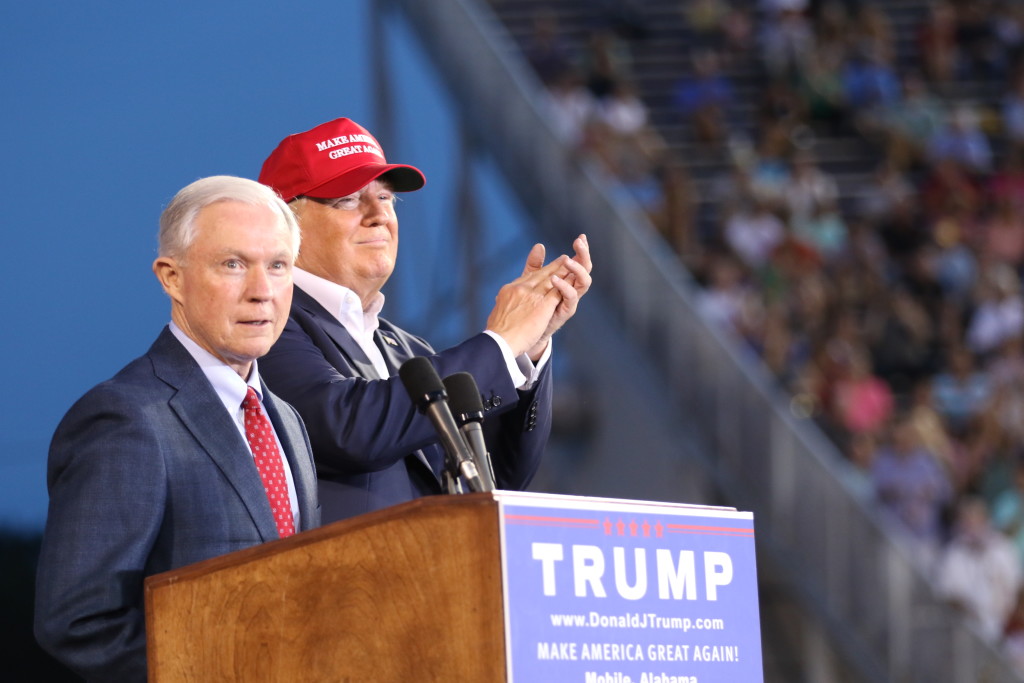
After a week of throwing barbs at one another, President Donald Trump took a low blow and criticized Jeff Sessions Thursday on his southern accent, and lack of Ivy League schooling. According to reports from POLITICO, Trump told aides and lawmakers on Wednesday Sessions doesn’t have the “Ivy League pedigree” he prefers, “that he can’t stand his Southern accent and that Sessions isn’t a capable defender of the president on television — in part because he “talks like he has marbles in his mouth.” This is only the latest in a series of insults Trump has hurled at Sessions in the last 10 days, while contemplating firing him. Last week, Trump fired several barbs at Sessions, telling Fox news channel’s “Fox & Friends” that Sessions “took the job and then he said, ‘I’m going to recuse myself.” “[He] never took control of the Justice Department and it’s a sort of an incredible thing,” Trump continued. Sessions then fired back at the president, saying that the DOJ would not be “improperly influenced by political considerations.” Two White House aides said “Trump’s latest push against Sessions was fueled by last week’s conviction of Trump’s lawyer Michael Cohen and former campaign manager Paul Manafort,” AL.com reported. Trump has reportedly been discussing firing Sessions for months, airing his frustration with Republican members of the House and Senate, according to CNN. But Sessions isn’t only losing the President’s trust. His former colleagues and evangelical leaders, who once held him in high esteem, are also questioning whether or not he should stay in the AG post. South Carolina Republican Sen. Lindsey Graham told Bloomberg last Thursday that, “The president’s entitled to an attorney general he has faith in, somebody that’s qualified for the job, and I think there will come a time, sooner rather than later, where it will be time to have a new face and a fresh voice at the Department of Justice.” And on Monday, one of the top conservative evangelical leaders in the nation, Jerry Falwell Jr. urged Trump to fire sessions. “He really is not on the president’s team, never was,” Falwell told Politico. “He’s wanted to be attorney general for many, many years. I have a feeling he took a gamble and supported the president because he knew he would reward loyalty.”
Ex-Trump campaign chairman Paul Manafort guilty on 8 charges
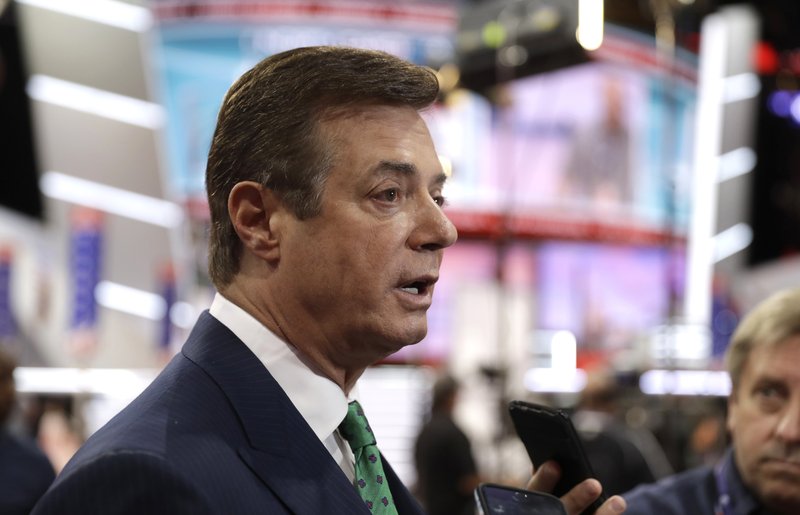
Paul Manafort, the longtime political operative who for months led Donald Trump’s successful presidential campaign, was found guilty of eight financial crimes in the first trial victory of the special counsel investigation into the president’s associates. A judge declared a mistrial Tuesday on 10 other counts the jury could not agree on. The verdict was part of a stunning one-two punch of bad news for the White House, coming as the president’s former lawyer, Michael Cohen, was pleading guilty in New York to campaign finance charges arising from hush money payments made to two women who say they had sexual relationships with Trump. WHAT HAPPENED IN COURT? The jury returned the decision after deliberating four days on tax and bank fraud charges against Manafort, who led Trump’s election effort during a crucial stretch of 2016, including as he clinched the Republican nomination and during the party’s convention. Manafort, who appeared jovial earlier in the day amid signs the jury was struggling in its deliberations, focused intently on the jury as the clerk read off the charges. He stared blankly at the defense table, then looked up, expressionless, as the judge finished thanking the jury. “Mr. Manafort is disappointed of not getting acquittals all the way through or a complete hung jury on all counts,” said defense lawyer Kevin Downing. He said Manafort was evaluating all his options. The jury found Manafort guilty of five counts of filing false tax returns on tens of millions of dollars in Ukrainian political consulting income. He was also convicted of failing to report foreign bank accounts in 2012 and of two bank fraud charges that accused him of lying to obtain millions of dollars in loans after his consulting income dried up. The jury couldn’t reach a verdict on three other foreign bank account charges, and the remaining bank fraud and conspiracy counts. WHAT’S NEXT FOR MANAFORT? The outcome, though not the across-the-board guilty verdicts prosecutors sought, almost certainly guarantees years of prison for Manafort. It also appears to vindicate the ability of special counsel Robert Mueller’s team to secure convictions from a jury of average citizens despite months of partisan attacks, including from Trump, on the investigation’s integrity. The verdict raised immediate questions of whether the president would seek to pardon Manafort, the lone American charged by Mueller to opt for trial instead of cooperating. The president has not revealed his thinking but spoke sympathetically throughout the trial of his onetime aide, at one point suggesting he had been treated worse than gangster Al Capone. The president on Tuesday called the outcome a “disgrace” and said the case “has nothing to do with Russia collusion.” WHAT DOES THIS MEAN FOR THE MUELLER PROBE? The trial did not resolve the central question behind Mueller’s investigation — whether Trump associates coordinated with Russia to influence the election. Still, there were occasional references to Manafort’s work on the campaign, including emails showing him lobbying Trump’s son-in-law, Jared Kushner, on behalf of a banker who approved $16 million in loans because he wanted a job in the Trump administration. Manafort urged Kushner to consider the banker, Stephen Calk, for secretary of the Army. Though Kushner responded to Manafort’s email by saying, “On it!” Calk ultimately did not get an administration post. For the most part, jurors heard detailed and sometimes tedious testimony about Manafort’s finances and what prosecutors allege was a yearslong tax-evasion and fraud scheme. Manafort decided not to put on any witnesses or testify himself. His attorneys said he made the decision because he didn’t believe the government had met its burden of proof. His defense team attempted to make the case about the credibility of longtime Manafort protege Rick Gates, attacking the government’s star witness as a liar, embezzler and instigator of any crimes while trying to convince jurors that Manafort didn’t willfully violate the law. Gates spent three days on the stand, telling jurors how he committed crimes alongside Manafort for years. He admitted to doctoring documents, falsifying information and creating fake loans to lower his former boss’ tax bill, and also acknowledged stealing hundreds of thousands of dollars without Manafort’s knowledge by filing fake expense reports. On Wednesday, defense lawyers asked the judge to keep under seal a bench discussion that referenced the special counsel’s pre-trial dealings with Gates. Prosecutors had initially asked the judge not to make the discussion public because of Mueller’s ongoing probe. WHAT WAS THE EVIDENCE? Beyond the testimony, prosecutors used emails and other documents to try to prove that Manafort concealed from the IRS, in offshore accounts, millions of dollars in Ukrainian political consulting feeds. Overall, they said, he avoided paying more than $16 million in taxes. Central to the government’s case were depictions of an opulent lifestyle, including a $15,000 ostrich jacket, luxury suits and elaborate real estate that prosecutors say was funded through offshore wire transfers from shell companies in Cyprus and elsewhere. U.S. District Judge T.S. Ellis III repeatedly grew impatient with prosecutors as they sought to demonstrate Manafort’s garish tendencies. The clashes between the judge and the prosecutor became a sideshow of sorts during the weekslong trial, with the judge at one point appearing to acknowledge that he had erroneously scolded them. After the trial, Ellis complimented lawyers on both sides for “zealous and effective representation.” He also remarked on his surprise at the level of attention the case has received and the criticism he received for his management of the trial. “We all take brickbats in life,” Ellis said. ANOTHER TRIAL LOOMING? The trial in Alexandria, Virginia, is the first of two for Manafort. He faces a trial later this year in the District of Columbia on charges of conspiracy against the United States, conspiracy to launder money, making false statements and acting as an unregistered foreign agent for Ukrainian interests. He is also accused of witness tampering in that case. Republished with the permission of the Associated Press.
Ex-Trump lawyer Michael Cohen pleads guilty in hush-money scheme
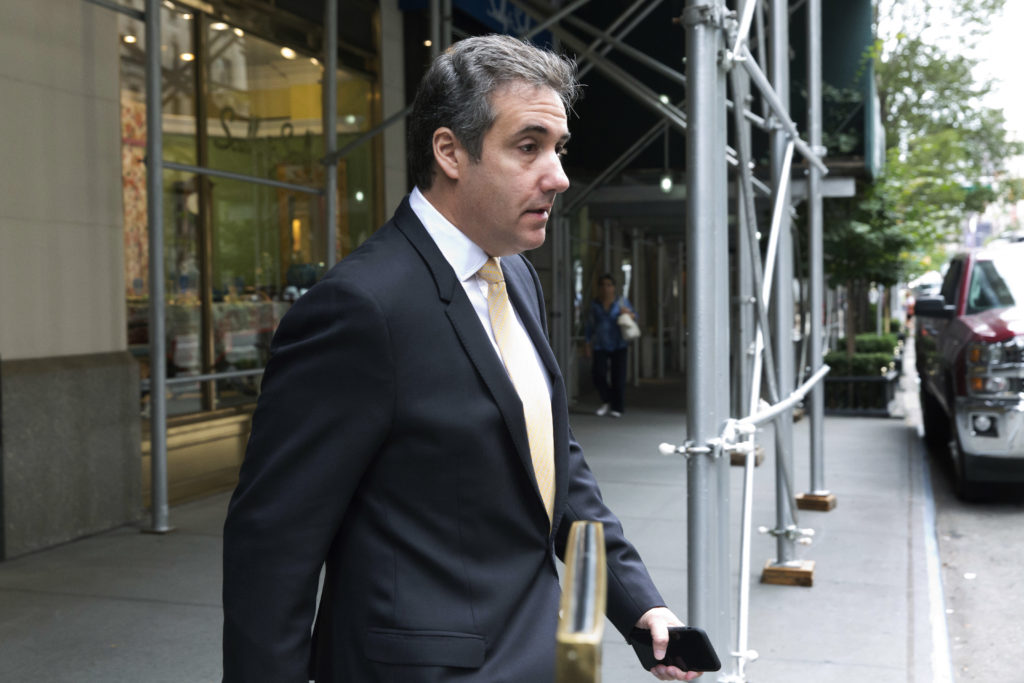
Michael Cohen, President Donald Trump‘s former personal lawyer and “fixer,” pleaded guilty Tuesday to campaign-finance violations and other charges, saying he and Trump arranged the payment of hush money to porn star Stormy Daniels and a former Playboy model to influence the election. The guilty plea came almost at the same moment former Trump campaign chairman Paul Manafort was convicted in Alexandria, Virginia, of eight financial crimes in the first trial to come out of special counsel Robert Mueller‘s sprawling Russia investigation. In a deal reached with federal prosecutors, Cohen, 51, pleaded guilty to eight counts in all, including tax evasion and making a false statement to a financial institution. He could get about four to five years in prison at sentencing Dec. 12. In entering the plea, Cohen did not name the two women or even Trump, recounting instead that he worked with an “unnamed candidate.” But the amounts and the dates all lined up with the payments made to Daniels and Playboy Playmate Karen McDougal. Cohen said the first payment was “in coordination and at the direction of a candidate for federal office,” and the second was made “under direction of the same candidate.” As cable networks were showing split-screen coverage of the dueling conviction and plea bargain by two former loyalists, Trump boarded Air Force One in the afternoon on the way to a rally in West Virginia. He ignored shouted questions to reporters about both former aides, retreating to his private stateroom on the airliner. Cohen’s plea follows months of scrutiny from federal investigations and a falling-out with the president, whom he previously said he would “take a bullet” for. The FBI raided Cohen’s hotel room, home and office in April and seized more than 4 million items. The search sought bank records, communications with Trump’s campaign and information on a $130,000 payment to Daniels and a $150,000 one to McDougal. Both women claimed Trump had affairs with them, which he denies. Trump denied to reporters in April that he knew anything about Cohen’s payments to Daniels, though the explanation from the president and his attorney Rudy Giuliani have shifted multiples times since. The president has fumed publicly about what he felt was government overreach, while privately worrying about what material Cohen may have after working for the Trump Organization for a decade. Trump branded the raid “a witch hunt,” an assault on attorney-client privilege and a politically motivated attack by enemies in the FBI. “Obviously it’s not good for Trump,” Sol Wisenberg, who conducted grand jury questioning of President Bill Clinton during the Whitewater investigation, said of Cohen plea bargain. “I’m assuming he’s not going to be indicted because he’s a sitting president, Wisenberg added. “But it leads him closer to ultimate impeachment proceedings, particularly if the Democrats take back the House.” The Justice Department’s Office of Legal Counsel, which provides legal advice and guidance to executive branch agencies, has held that a president cannot be indicted while in office. Trump’s lawyers have said that Mueller plans to adhere to that guidance, though Mueller’s office has never confirmed that. There would presumably be no bar against charging a president after he leaves the White House. Laurie Levenson, a former federal prosecutor and professor at Loyola Law School in Los Angeles, noted that the deal does not require Cohen to cooperate, but does not preclude it from happening, which should be worrying to the president and his allies. “What it shows is that the people close to the president have criminal exposure and it may mean they don’t need Cohen to cooperate,” she said. Levenson argued that the deal also knocks back the argument that the investigations swirling around Trump are a “witch hunt.” “No longer can you say Mueller is on a witch hunt when you have his own lawyer pleading guilty to things that were designed to impact the election,” she said. Mueller’s team is looking into Russian interference in the 2016 U.S. presidential election. The team referred the case involving Cohen’s financial dealings to federal prosecutors in Manhattan. Before the election, Cohen had been a trusted member of the Trump organization, working out of an office in Trump Tower next to one used by his boss. He raised millions for Trump’s campaign and, after being interviewed by the House Intelligence Committee last year, told Vanity Fair that Trump had no part in the suspected Russian conspiracy to tamper with the election. The president’s initial support for Cohen after the raid soon degenerated into a public feud, prompting speculation that, to save himself, Cohen might be willing to tell prosecutors some of the secrets he helped Trump keep. When Cohen’s team produced a recording he had made of Trump discussing one of the hush-money payments, Trump tweeted: “What kind of lawyer would tape a client? So sad!” Republished with permission from the Associated Press.
Prosecutors wrapping up case at Paul Manafort fraud trial
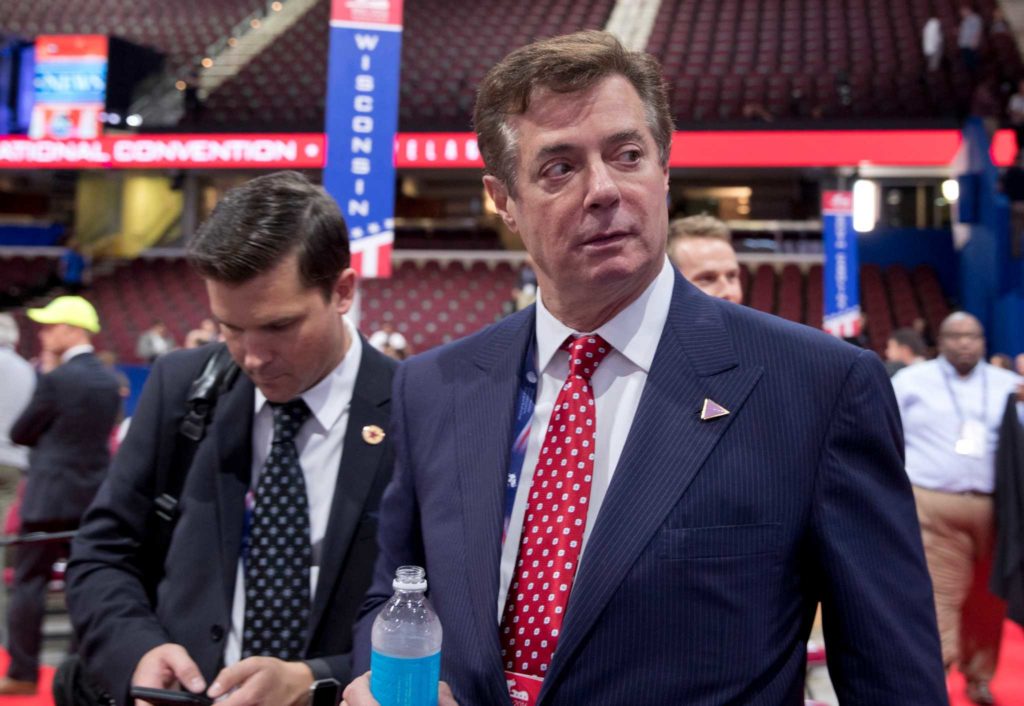
Prosecutors were poised Friday to wrap up their case against former Trump campaign chairman Paul Manafort, but the sometimes dramatic proceedings hit some unexpected delays after court opened. Judge T.S. Ellis III called a recess without explanation after huddling with attorneys from Special Counsel Robert Mueller’s office and Manafort’s lawyers for more than 20 minutes. Later after bringing court back into session, he strongly reminded jurors that they weren’t to discuss the tax evasion and bank fraud case with anyone. It was a hiccup as prosecutors headed toward resting their case against Manafort, proceedings that have been sometimes dramatic and featured tense exchanges with Mueller’s prosecutors. Earlier Friday, the prosecutors asked Ellis III to correct an earlier statement in which the judge suggested they were wasting the court’s time. On Thursday, prosecutors questioned a loan officer for Citizen’s Bank of New York, asking about Manafort’s 2016 loan application that the bank rejected. Ellis III interjected: “You might want to spend time on a loan that was granted.” Prosecutors said Ellis’ crack “misrepresents the law” regarding bank conspiracy and “is likely to confuse the jury.” Ellis did not immediately comment on the motion. The developments came after weeks of testimony that was sometimes tedious and based on bank and other records. Some spectators who had waited in line to attend the proceedings were seen falling asleep during a meticulous accounting of transactions, emails and ledgers that form the foundation of the case against Manafort. President Donald Trump’s campaign manager was a longtime political operator in Washington and elsewhere, right up to 2016 when the real estate magnate him as his campaign chairman. The prosecution is Mueller’s first of the investigation into Russian meddling in the presidential election, but neither Manafort nor his former protege Rick Gates has been charged in connection with their Trump campaign work. Though substantive, untelevised and far from a Trump-style reality show, the trial has featured some drama when star witness Gates testified against his former boss. Gates said he helped Manafort commit crimes in an effort to protect Manafort’s finances. Defense attorneys called Gates a liar interested in avoiding jail time under a plea deal. Gates was forced to admit embezzling hundreds of thousands of dollars from Manafort and an extramarital affair. When the two were first brought face-to-face in the courtroom, Manafort’s gaze bore down on his former protege and rarely wandered. Testimony was replete with examples of Manafort’s lavish lifestyle and allegedly falsified documents, including loan applications. Melinda James, a Citizens Bank mortgage loan assistant, testified that Manafort told the bank that a New York City property would be used as a second residence, but she found it listed as a rental on a real estate website. That distinction matters because banks regard loans for rental, or investment, properties as riskier and may impose restrictions, including on how much money they’re willing to lend. Jurors saw an email from Manafort to his son-in-law, Jeffrey Yohai, in which he advised him that an appraiser was looking to schedule a visit to the property. “Remember, he believes that you and Jessica are living there,” Manafort wrote in the email, referencing his daughter. The prosecution has called more than 20 witnesses, including Gates, and introduced a trove of documentary evidence as they’ve sought to prove Manafort defrauded banks and concealed millions of dollars in offshore bank accounts from the IRS. Along the way, they’ve not only faced an aggressive defense team but tongue-lashings, and a rare walk-back, from Ellis. The judge has subjected the prosecution to repeated scolding over the pace of their questioning, their large amount of trial exhibits and even their facial expressions. But on Thursday, Ellis told jurors he went overboard when he erupted at prosecutors a day earlier for allowing an expert witness to remain in the courtroom during the trial. “Put aside my criticism,” Ellis said, adding, “This robe doesn’t make me anything other than human.” Republished with the permission of the Associated Press.
Donald Trump calls on Jeff Sessions to end Robert Mueller’s Russia probe
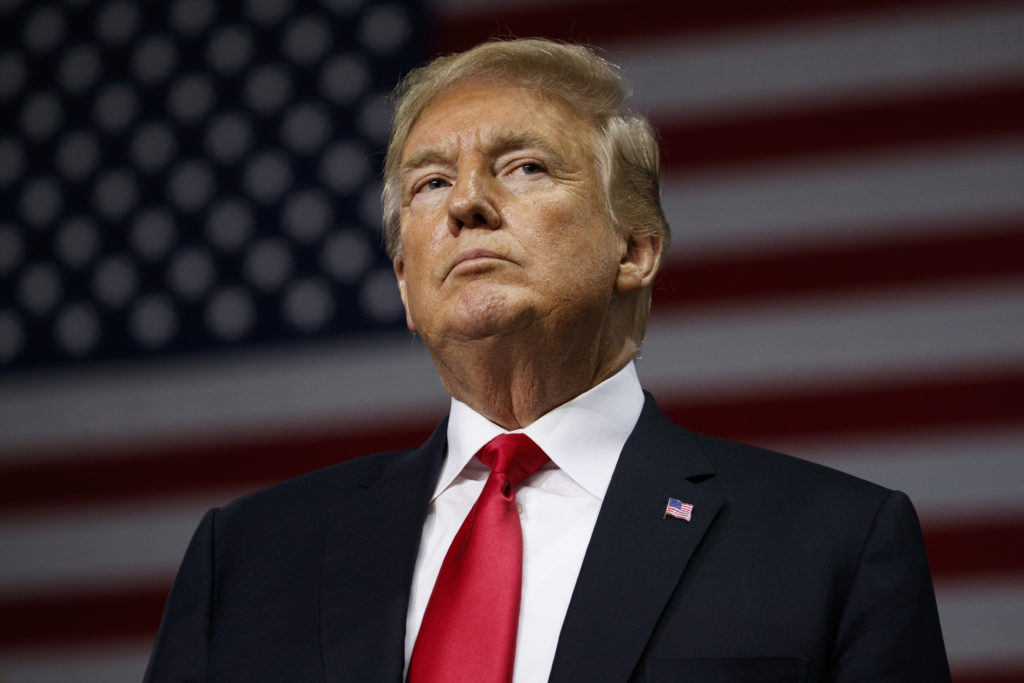
President Donald Trump called Wednesday for Attorney General Jeff Sessions to put an end to special counsel Robert Mueller‘s Russia probe, a day after Trump’s former campaign chairman went on trial. Taking to Twitter to complain about the ongoing Russia investigation, Trump said Sessions “should stop this Rigged Witch Hunt right now, before it continues to stain our country any further.” The relationship between Sessions and the president has been strained for more than a year, since the attorney general recused himself from investigations relating to the 2016 election because of Sessions’ role on the Trump campaign. Mueller’s team is accountable to Deputy Attorney General Rod Rosenstein. Tuesday marked the first day of Paul Manafort‘s trial on charges of tax evasion and bank fraud brought by Mueller’s team, charges that stemmed from Manafort’s consulting work for Ukraine, for which he allegedly received millions he did not report to the U.S. government. Seeking to distance himself from his ex-campaign chairman, Trump said, “He worked for me for a very short time.” But Manafort’s involvement in the Trump campaign spanned six months, and he led efforts to secure the GOP nomination for Trump in 2016. Trump said the charges against Manafort “have nothing to do with Collusion.” Potential coordination between Russian government agents and the Trump campaign is still a matter of investigation by Mueller’s team, which is also investigating potential obstruction of justice by the president. Trump called claims of collusion “a Hoax.” Republished with permission from the Associated Press.
DOJ lifts secrecy on foreign lobbying opinions
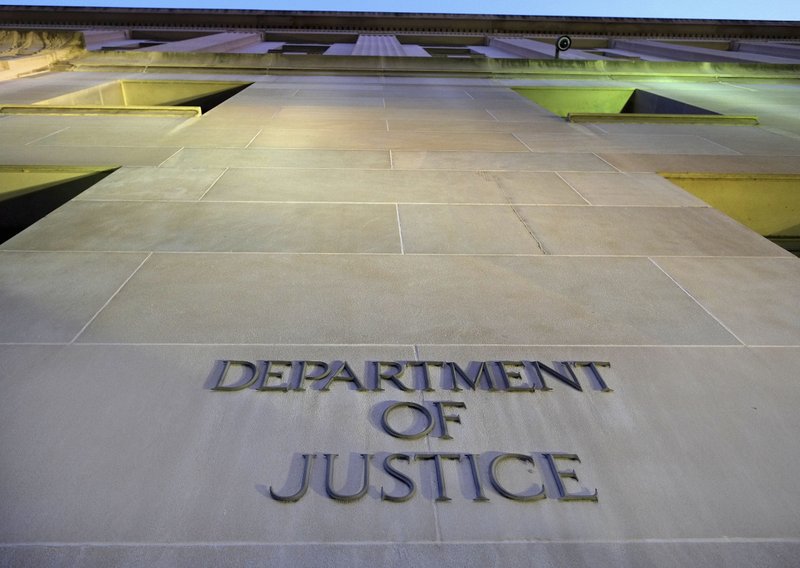
The Justice Department is opening up about the advice it has given to lobbyists who work for foreign governments and political interests. For the first time, the public will be able to read advisory opinions the department has issued to lobbyists, public relations professionals and others about whether they need to register under the Foreign Agents Registration Act, or FARA. The department had kept the opinions secret for decades, a point of contention for transparency advocates and lawyers who specialize in advising clients on complying with the law. The opinions provide an unprecedented view into the thinking of a specialized Justice Department unit whose influence has grown in recent years, propelled by more aggressive enforcement and a special counsel investigation focused on foreign influence operations inside the U.S. The Associated Press obtained copies of dozens of opinions, which were to be posted online later Friday. Those who have requested the department’s guidance include a television host who worked for a company with foreign connections, people negotiating with other governments over the release of prisoners and a firm that planned a U.S. fundraiser for a politician in another country. The department removed the names and other identifying details from the opinions to allow for their public release. In disclosing the opinions, Justice Department officials say they want the public to better understand how they interpret a decades-old law meant to allow Americans to know when foreign entities are trying to influence public opinion or policymakers. The law, enacted in 1938 to unmask Nazi propaganda in the United States, requires people to disclose to the Justice Department when they advocate, lobby or perform public relations work in the U.S. on behalf of a foreign government or political entity. “Today is the law’s 80th anniversary, and it remains a vital tool to combat this threat,” Assistant Attorney General John Demers, the department’s top national security official, said in a statement. “To enhance compliance, we are making these advisory opinions available publicly and online for the first time. By posting these advisory opinions, the Department of Justice is making clearer how we interpret some of FARA’s key provisions.” The heightened enforcement and some high-profile registrations have coincided with special counsel Robert Mueller’s Russia investigation. In the last two years alone, President Donald Trump’s former campaign chairman, Paul Manafort, and former White House national security adviser Michael Flynn have had to register under the law, as has Tony Podesta, a top Democratic lobbyist and brother of Hillary Clinton’s campaign chairman. Manafort is set to go to trial later this year on charges that he concealed his lobbying and influence work on behalf of Ukrainian interests, including a pro-Russian political party. The Justice Department also required the U.S.-based operations of RT, an international television network funded by the Russian government, to register as a foreign agent, a move that angered Russian leaders late last year. U.S. intelligence agencies have alleged RT functioned as a propaganda outlet for the Kremlin as part of an effort to interfere in the 2016 U.S. presidential election. The opinions obtained by the AP show the wide array of requests the Justice Department receives from people and companies trying to determine if they’re obligated to register. In August 2015, for instance, the department determined that a U.S. firm would have to register as a foreign agent if it wanted to host a fundraiser for a candidate running for president in another country. Last February, though, lawyers told a consultant for a foreign government that registration was unnecessary because the work was being done almost entirely outside the United States. That same month, a U.S. organization coordinating with foreign governments in the release of prisoners abroad was told it wouldn’t need to register because the work was humanitarian in nature and not funded by foreign money. Republished with the permission of the Associated Press.
Donald Trump tweet takes aim at Jeff Sessions, again

The Latest on President Donald Trump and the probe into Russian interference in the 2016 election (all times local): 7:35 a.m. President Donald Trump is blaming his attorney general, Jeff Sessions, for allowing the Russia investigation to continue. Trump tweets that he would have “picked someone else” for the top job at the Justice Department had he known Sessions would recuse himself from the probe. It’s the latest salvo from Trump in his bid to discredit the ongoing probe by special counsel Robert Mueller. Mueller is investigating Russia’s attempts to sway voters in the 2016 election and whether Trump associates provided any help. He’s also investigating whether Trump obstructed justice by taking steps to shut down the probe Trump tweeted Tuesday: “The Russian Witch Hunt Hoax continues, all because Jeff Sessions didn’t tell me he was going to recuse himself…I would have quickly picked someone else. So much time and money wasted, so many lives ruined…and Sessions knew better than most that there was No Collusion!” The Russian Witch Hunt Hoax continues, all because Jeff Sessions didn’t tell me he was going to recuse himself…I would have quickly picked someone else. So much time and money wasted, so many lives ruined…and Sessions knew better than most that there was No Collusion! — Donald J. Trump (@realDonaldTrump) June 5, 2018 ___ 7 a.m. President Donald Trump says he wants to know “what is taking so long” with an internal Justice Department probe expected to criticize the FBI and its handling of the case involving Democrat Hillary Clinton’s private email server. Trump tweets that he hopes any findings aren’t being watered down because “there are so many horrible things to tell.” The upcoming report from the Justice Department’s internal watchdog is expected to criticize senior FBI leaders for not moving quickly enough to review a trove of Clinton emails discovered late in the 2016 campaign. Trump tweeted: “What is taking so long with the Inspector General’s Report on Crooked Hillary and Slippery James Comey. Numerous delays. Hope Report is not being changed and made weaker! There are so many horrible things to tell, the public has the right to know. Transparency!” What is taking so long with the Inspector General’s Report on Crooked Hillary and Slippery James Comey. Numerous delays. Hope Report is not being changed and made weaker! There are so many horrible things to tell, the public has the right to know. Transparency! — Donald J. Trump (@realDonaldTrump) June 5, 2018 Trump has repeatedly criticized the FBI’s handling of the Russia probe and said the focus should be on the Clinton email case. __ 12:41 a.m. The former chairman of President Donald Trump’s presidential campaign is facing accusations of trying to tamper with witnesses in his ongoing criminal cases. Paul Manafort has been accused in an indictment of acting as an unregistered foreign agent by lobbying in the U.S. on behalf of Ukrainian interests. Prosecutors working for special counsel Robert Mueller allege in a court filing Monday that Manafort and one of his associates “repeatedly” contacted two witnesses in an effort to influence their testimony. Prosecutors say the contacts occurred earlier this year while Manafort was confined to his home. In the filing, the government asks a federal judge to consider jailing Manafort while he awaits trial. A spokesman for Manafort says his client and his lawyers are reviewing the filing. Republished with the permission of the Associated Press.
Special counsel team has floated idea of subpoena for Donald Trump
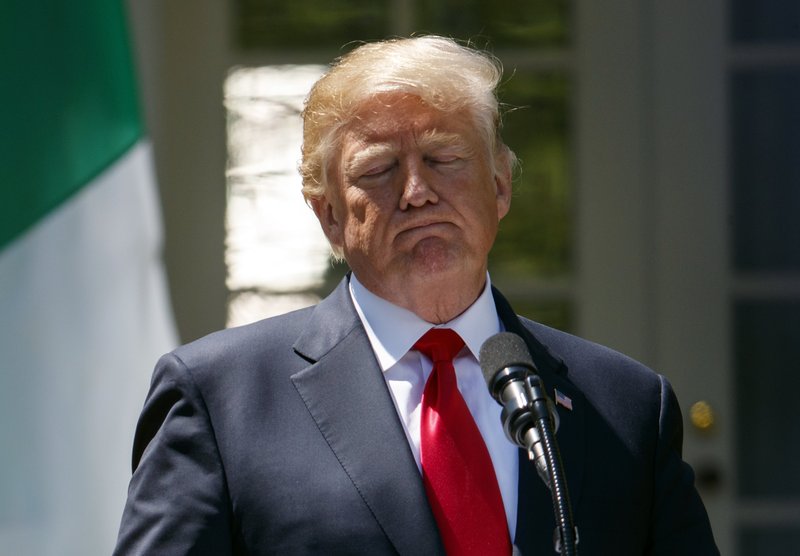
The special counsel leading the Russia investigation raised the prospect in March of issuing a grand jury subpoena for President Donald Trump, his former attorney said, confirming that investigators have floated the extraordinary idea of forcing a sitting president to testify under oath. Attorney John Dowd told The Associated Press on Tuesday that special counsel Robert Mueller’s team broached the subject during a meeting with Trump’s legal team while they were negotiating the terms of a possible interview with the president. It was not immediately clear in what context the possibility of a subpoena was raised or how serious Mueller’s prosecutors were about the move. Mueller is probing not only Russian election interference and possible coordination with Trump associates but possible obstruction of justice by Trump. Trump lashed out against the investigation in a familiar fashion Wednesday, saying on Twitter: “There was no Collusion (it is a Hoax) and there is no Obstruction of Justice (that is a setup & trap).” Even if Mueller’s team decided to subpoena Trump as part of the investigation, he could still fight it in court or refuse to answer questions by invoking his Fifth Amendment protection from self-incrimination. Dowd’s comments come more than a month after he resigned from the legal team, and they provide a new window into the nature of the Trump lawyers’ interactions with the special counsel, whom the president has increasingly tried to undermine through public attacks. On Tuesday, Trump said it was “disgraceful” that a list of proposed questions drafted in response to Mueller’s negotiations with the legal team was “leaked” to the news media. The about four dozen questions were compiled by Trump’s lawyers during negotiations with Mueller’s investigators earlier this year over the prospect of a presidential interview. A person familiar with the matter, who insisted on anonymity to discuss ongoing negotiations, told the AP that the president’s lawyers extrapolated the list of expected questions based off conversations with Mueller’s team about the topics prosecutors wanted to cover in a potential sit down with Trump. The questions reflected what the defense lawyers anticipated Trump would be asked, rather than verbatim queries that Mueller’s team provided, the person said. The Washington Post first reported that Mueller’s team raised the possibility of a subpoena for Trump. The New York Times first published the list of questions. According to the list, the questions range from Trump’s motivations for firing FBI Director James Comey a year ago to contacts Trump’s campaign had with Russians. Although Mueller’s team has indicated to Trump’s lawyers that he’s not considered a target, investigators remain interested in whether the president’s actions constitute obstruction of justice and want to interview him about several episodes in office. They have not yet made a decision about an interview. In his tweet, Trump said there were “no questions on Collusion” and, as he as many times before, called Mueller’s investigation a “Russian witch hunt.” He said collusion with the Russians “never existed.” In a second tweet, Trump said: “It would seem very hard to obstruct justice for a crime that never happened.” The questions do appear to indicate that Mueller is looking into possible collusion. Some touch on Russian meddling and whether the Trump campaign coordinated in any way with the Kremlin. In one question, Mueller asks what Trump knew about campaign staff, including his former campaign chairman Paul Manafort, reaching out to Moscow. Mueller has brought several charges against Manafort already, including money laundering and bank fraud. None of the charges relates to allegations of Russian election interference and possible coordination with Trump associates, and Manafort has denied having anything to do with such an effort. The questions also involve key moments from the early months of the Trump administration, including his reaction to Attorney General Jeff Sessions’ recusal from the Russia investigation and Trump’s firing of his national security adviser, Michael Flynn. One question asks whether there were any efforts to reach out to Flynn “about seeking immunity or possible pardon” ahead of his guilty plea last year. Flynn is now cooperating with Mueller. Republished with the permission of the Associated Press.
Donald Trump says of James Comey: ‘He’s either very sick or very dumb’
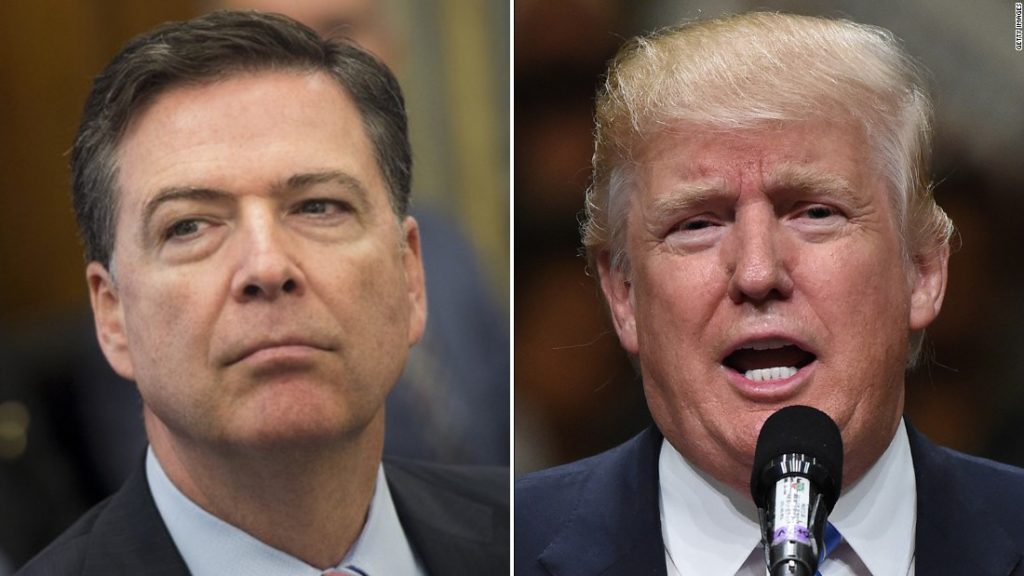
President Donald Trump insists he “won’t be involved” in any attempt to interfere with the investigation into Russian election meddling — unless he changes his mind. Trump also is renewing his attacks on James Comey, the FBI director he fired last year, accusing him of lying about Trump’s trip to Moscow in 2013 that has received fresh scrutiny. Early Friday, Trump accused Comey in a tweet of leaking classified information. “He’s either very sick or very dumb,” Trump tweeted. On Thursday, the GOP-led Senate Judiciary Committee approved a measure that would safeguard special counsel Robert Mueller from being fired. The move came shortly after Trump, in a television interview, blasted the Justice Department, which oversees the special counsel’s investigation. “I am very disappointed in my Justice Department. But because of the fact that it’s going on, and I think you’ll understand this, I have decided that I won’t be involved,” the president said in a telephone interview with “Fox & Friends.” But then he added: “I may change my mind at some point, because what’s going on is a disgrace.” The Mueller legislation approved by the Senate panel may be largely symbolic, since Majority Leader Mitch McConnell has said he won’t bring it up for a full Senate vote. But it shows there are limits to Republican support for Trump when it comes to the president’s attacks on the special counsel’s probe. Four Republicans joined Democrats in a 14-7 committee vote to approve the measure. Nearly all GOP senators say Trump shouldn’t fire Mueller. And Republicans who support the legislation say it’s necessary to guard against presidential interference by giving Congress more oversight power. “While my constitutional concerns remain, I believe this bill should be considered by the full Senate,” said Sen. Chuck Grassley, R-Iowa, chairman of the committee, adding to pressure on McConnell. Trump has increased his criticism of the Russia investigation since the FBI’s raids on the office and hotel room being used by Michael Cohen, a Trump personal attorney who is under federal criminal investigation in New York for unspecified business dealings. Trump again called the investigation “a witch hunt” and insisted there was “no collusion” with Russia. Much of his vitriol in his TV remarks was directed at Comey. He laced into the former FBI director as “a leaker” and “a liar.” He disputed Comey’s claim that Trump told him he did not spend the night in Moscow during his 2013 trip to attend the Miss Universe pageant. “He said I didn’t stay there a night. Of course I stayed there,” Trump said. “I stayed there a very short period of time but of course I stayed.” Comey last year created a series of contemporaneous memos — some classified, some not — to document his interactions with Trump. He wrote in the memos that Trump repeatedly brought up allegations contained in an unverified document that explored ties between Trump’s orbit and Russia. Among the most salacious details was a report that Trump consorted with prostitutes overnight on that trip, a claim Trump has denied. Comey wrote in the memos that Trump told him that he’d never stayed the night in Moscow. Flight records and social media posts from that week indicate that Trump did spend at least one night in Russia. Comey said on a CNN program that aired Wednesday — watched by Trump — that he was always concerned when someone lied to the FBI, particularly if it was about something that an agent never asked about, as he said was the case with Trump. “It tends to reflect consciousness of guilt as we would say in law enforcement,” Comey said. He added: “If they bring things up you didn’t ask about, and if they bring it up and make a false statement about it, that’s — it’s not definitive, but it certainly makes you very concerned about what might be going on there.” Trump denied having that conversation with Comey. “You look at the corruption at the top of the FBI. It’s a disgrace,” Trump said. “And our Justice Department, which I try and stay away from, but at some point I won’t.” He also suggested Comey leaked classified information in the memos. Comey has denied that allegation. He has acknowledged that the Justice Department’s inspector general, who has been investigating FBI actions during the Hillary Clinton email probe, was examining whether Comey complied with FBI policy in how he produced and stored the memos. He said that inquiry is not looking at whether he mishandled classified information, “because that’s frivolous.” “The bottom line is, I see no credible claim by any serious person that that violated the law,” he said on CNN. A conscious effort by Trump to mislead the FBI director could lend weight to the allegation, contained in the private research dossier compiled by a former British spy in 2016, that Trump engaged in compromising activity during the trip that exposed him to potential Russian blackmail. The Mueller probe has already led to the indictments of several former Trump campaign officials, including onetime campaign chairman Paul Manafort, who is charged with engaging in conspiracy and money laundering. Trump, who recently added former New York City Mayor Rudy Giuliani to his legal team, has not committed to sitting for an interview with Mueller’s investigators. Republished with the permission of the Associated Press.


